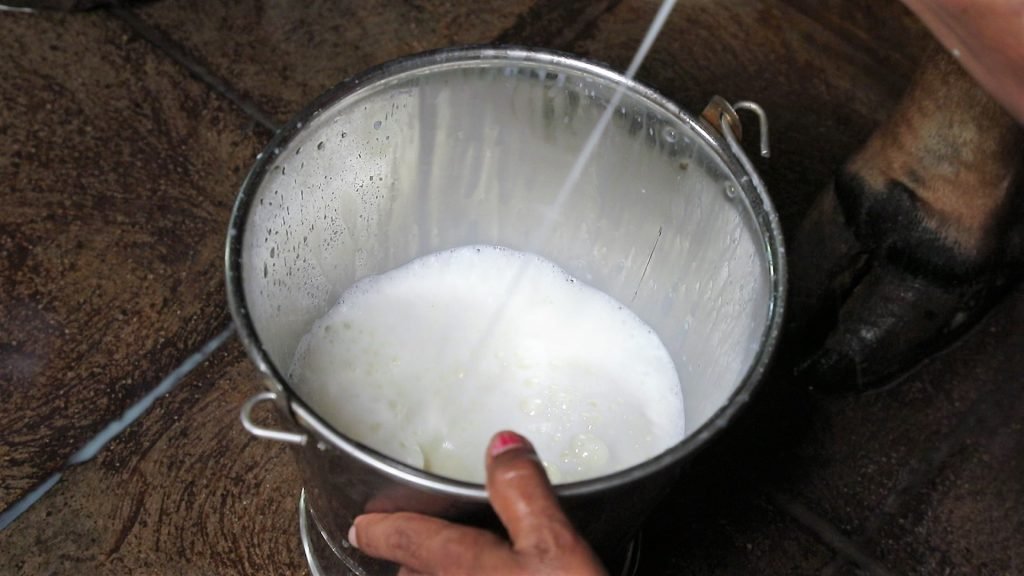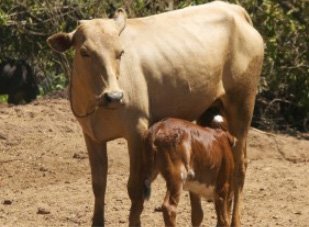Obesity and Cow Milk

What is Obesity?
Obesity in simple terms refers to body overweight and is expressed as body mass Index (BMI), with a threshold value of 30kg/m2. Obesity is one of the common health issues today. Obesity is the result of a combination of various causes and contributing factors. There may be individual factors like Behavior and Genetics. Individual behaviors that contribute or lead to the obese condition include physical activity, dietary patterns, use of medication, and other exposures. Why obesity is a serious concern because it affects the quality of life, reduces mental abilities, and may make the individual prone to the risks of other disorders like diabetes, heart disease, stroke, and some types of cancer. Increasing cases of obesity among the children make it a further serious issue at the societal level.
Obesity vs Cow Milk
Cow milk is an important dietary item provided to children throughout the world. However, milk had been identified as a villain among food items, due to its relatively high-fat content during the last few decades. But this myth has got busted during recent years as more useful ingredients got discovered in the cow milk. Interestingly, several recent findings have made a turnaround of the understanding about the influence of milk on the body weight. Milk used to be known to contain protein, fat, vitamin D and calcium. Recent findings on the nutritional competency of cow milk have confounded with another wonderful molecule called nicotinamide riboside (NR), the precursor of NAD+ involved in the conversion of fuel to energy in the cells.
NAD+ has been identified with multiple metabolic outcomes such as lowering the blood sugar levels, reducing fatty liver, and preventing peripheral nerve damage in prediabetes and type 2 diabetes. Surprisingly, latest studies have revealed the role of NAD+ in preventing obesity despite the consumption of high-fat diet and leading to a healthy aging process. According to nutritionists and dieticians cow milk helps in preventing weight gain leading to obesity among children and young adults. These findings have been attributed to some of the beneficial nutrients present in the cow milk, such as protein, vitamin D, and calcium.
Other health benefits
Now it is proved beyond doubt that cow milk is a unique combination of nutrients capable of moderating the metabolism, growth, and well-being of the human body. Cow milk facilitates brain functioning because it provides important fatty acids contributing to the structural integrity and performance of the brain. The Omega-3 Fatty Acids, with Docosahexaenoic Acid (DHA), being a key molecule play a crucial role in brain health and performance. DHA makes major structural and functional components of the human brain and hence considered as a nutritional supplement for maintaining the cognitive functions of the brain in a better status throughout the lifetime of an individual. Just like Calcium is essential for bone health, DHA is essential for fitness of the brain.
The cow milk is a rich source of alpha-linolenic acid (one of the omega-3 fatty acids), the precursor molecule of DHA. Therefore, regular consumption of cow milk would safeguard the cognitive functions and sustain the neurological health of the human body. Apart from unsaturated fatty acids, cow milk contains vitamin D, vitamin K, Calcium and many other proteins and vitamins which play multiple functions in coordinating body systems like the bones, muscles, blood vessels, digestive organs, endocrine glands, etc. which in turn tone the body functioning at molecular, cellular and organ levels. Cow milk prevents the onset of osteoporosis. The proteins, enzymes, vitamins, and minerals present in the cow milk play important roles in streamlining human metabolism, preventing disorders like obesity, diabetes, anemia, etc.
Please note :- When we refer to cow milk, we mean A2 milk, got from the Zebu breed of Cattle, especially the local Indian variety of cows.
Help Us Now

Donate to Surabhivana Gaushala to save and protect Indian Cow Breeds.
All donations are exempt under Section 80G of the Income Tax Act, 1961. All donation receipts shall be mailed to the address given by the donor or may be collected in person, at request.
Click the below button to donate through credit cards/debit cards or Net Banking via Razor Pay.
